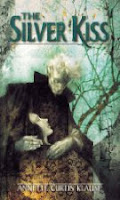 |
| Image credit: LibraryThing.com |
Butler, Octavia E. Mind of My Mind. New York: Doubleday & Company, 1977.
Annotation: A woman telepath who was created to be a part of a new human race realizes she is able to control people’s minds more than was excepted by her father, who has been controlling others for 4,000 years.
Book talk:
Doro, my father, has been in charge for 4,000 years. He created a breeding program to create a new race. People always have done what he wanted them to do. Hell, even me. Well not anymore. He told me I was special, but I guess he didn’t know how special I was going to be. After my transition when I learned to control my talent, I became powerful in a new way. Now I’m able to control others with my mind. Doro had better watch out. He no longer is in complete control with all of the power.
Awards: None
Awards: None





